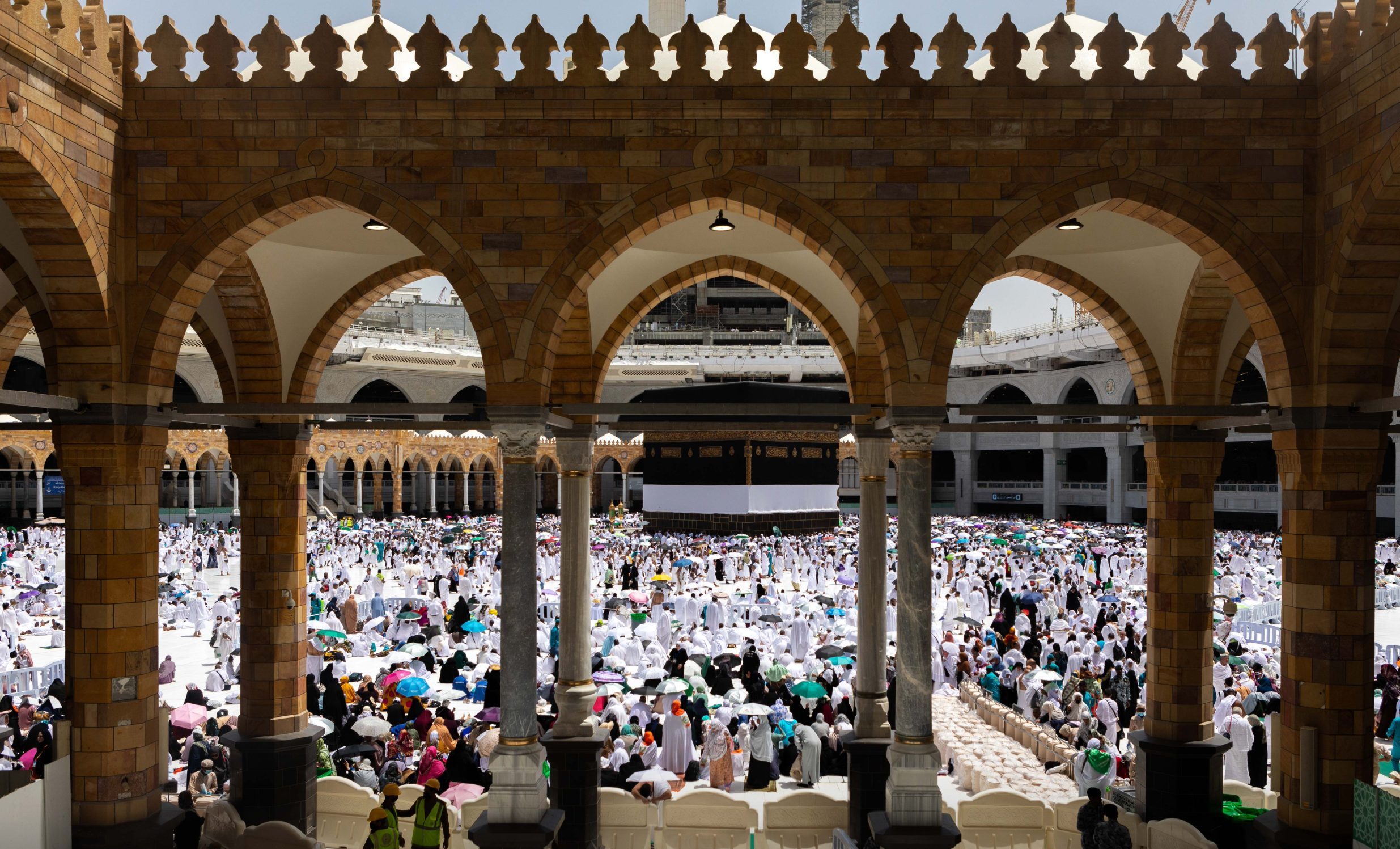Saudi Arabia is ready to host at least two million pilgrims as it returns to pre-pandemic levels.
Millions of Muslims from around the world have commenced the ‘journey of a lifetime’ in Mecca on Monday, marking the first day of the annual Hajj season.
Dubbed by Saudi authorities as “the largest pilgrimage in history”, this year’s pilgrimage is the first since 2020 to be held following the scrapping of all Covid-19 measures.
At the height of the pandemic, around 10,000 individuals were granted permission to undertake the pilgrimage due to strict preventative measures.
Earlier this month, Saudi Arabia unveiled its largest Hajj operational plan in history, which includes 14,000 staff members and more than 8,000 volunteers to assist pilgrims as they perform the centuries-old Islamic rituals.
More than 2.5 million pilgrims from various corners of the globe are expected to attend the pilgrimage despite the scorching temperatures, which soar up to approximately 45 degrees Celsius.
Saudi authorities say they have made extensive arrangements, deploying thousands of healthcare professionals and ambulances to ensure a seamless journey for the pilgrims.
On Monday, pilgrims from Qatar embarked on their journey across the border to begin their spiritual journeys.
A team from Qatar’s Hajj mission departed the Gulf state earlier in June to help facilitate a smoother experience at the holy site, the Qatar news agency reported, citing the Ministry of Endowments (Awqaf) and Islamic Affairs.
The Qatari mission has a “Call and Support Unit Center” that is available to assist all Qatari pilgrims and provide them with “awareness, guidance and health services,” detailed Ibrahim bin Mohammed Al Nama, the Head of Coordination and Follow-up Unit of Awqaf’s Hajj and Umrah Affairs Department.
In March, Qatari authorities completed the electronic screening of Hajj candidates for this year, giving priority to Qataris and residents who have not previously performed the pilgrimage, as well as the elderly, and those whose applications were not previously approved.
The reopening of borders between Qatar and Saudi Arabia following the 2017 regional crisis has allowed more Qataris to easily travel for both Hajj and Umrah via land.
Hajj is one of the five pillars of Islam and is obligatory for those who are financially and physically capable of doing so. It is required to be completed at least once during the lifetime of a Muslim. The pilgrimage holds profound significance for Muslims and is regarded as a purifying experience for the soul.
It begins at the sacred Kaaba in Mecca before the pilgrims move on to other revered sites such as Mina and Muzdalifah and Mount Arafat – the location in which the Prophet Muhammad delivered his final and most impactful sermon







